A
Acquis Communautaire
 Acquis Communautaire – is a French expression which basically means “the EU as it is” and implies rights and obligations of countries members of the EU. “Acquis” consists of all the contracts and laws of the Union, declarations, resolutions, international agreements on issues of the EU, and verdicts of the European Court. It also consists of the actions undertaken by the countries members in the area of jurisdiction, internal affairs, and joint foreign and security policies. “Accepting the acquis” actually means accepting the EU as it is. In order to join the Union, countries candidates must accept “acquis” and make it as part of their national legislation. Members of the Union must in their national legislation prescribe the similar obligations for their citizens, in order for all countries members to have prescribed the minimum obligation in each region in which the Union has legislative competencies.
Acquis Communautaire – is a French expression which basically means “the EU as it is” and implies rights and obligations of countries members of the EU. “Acquis” consists of all the contracts and laws of the Union, declarations, resolutions, international agreements on issues of the EU, and verdicts of the European Court. It also consists of the actions undertaken by the countries members in the area of jurisdiction, internal affairs, and joint foreign and security policies. “Accepting the acquis” actually means accepting the EU as it is. In order to join the Union, countries candidates must accept “acquis” and make it as part of their national legislation. Members of the Union must in their national legislation prescribe the similar obligations for their citizens, in order for all countries members to have prescribed the minimum obligation in each region in which the Union has legislative competencies.
Applicant
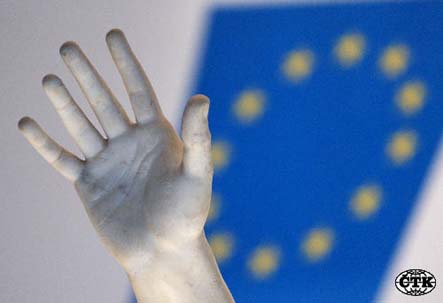 Applicant – The term relates to the country which has submitted the request for membership in the EU. Once the request has been officially accepted, then the country becomes a country candidate. But, before the country candidate joins the Union, it must fulfill the Copenhagen criterions.
Applicant – The term relates to the country which has submitted the request for membership in the EU. Once the request has been officially accepted, then the country becomes a country candidate. But, before the country candidate joins the Union, it must fulfill the Copenhagen criterions.
B
Bilateral Inter-Governmental Conference
Bilateral Inter-Governmental Conference – negotiations on joining have a form of bilateral inter-governmental conferences between the representatives of the Union and the country – submitter of the request for membership.
C
Candidate country
Candidate country is a country that has applied for full membership in the Union and which, based on the positive opinion of the European Commission, has been approved by the European Council as a candidate for membership. This term differs from the term acceding country – a country that has met the criteria for membership, concluded negotiations on membership, signed treaties on accession to the Union and is awaiting full membership.
Chapter on Public Services
Chapter on Public Services – the idea “hidden” behind this chapter is the establishment of basic rights and principles which regulate provision of services to the users. Those principles should include the continuity of services, quality, security of supply, equal approach, acceptable prices, social, cultural and ecologic acceptability.
Citizenship in the Union
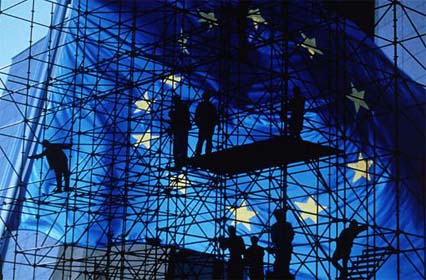 Citizenship in the Union – Everyone, who is a citizen of the country-member of the Union, considers himself/herself a citizen of the EU. This citizenship is only a complement to the national citizenship. With the rights and obligations prescribed by the European Community Establishment Contract, four special rights have been given to the Union citizenship: freedom of moving and residing anywhere in the Union; right to vote and candidacy in the elections for local government and the European Parliament in the country residence; right to submit the request and complaint to the European ombudsman, and each citizen of the Union, who gets out of the Union borders, has a right on diplomatic and consular protection by the competent authorities of any country-member, if their country does not have its official representation.
Citizenship in the Union – Everyone, who is a citizen of the country-member of the Union, considers himself/herself a citizen of the EU. This citizenship is only a complement to the national citizenship. With the rights and obligations prescribed by the European Community Establishment Contract, four special rights have been given to the Union citizenship: freedom of moving and residing anywhere in the Union; right to vote and candidacy in the elections for local government and the European Parliament in the country residence; right to submit the request and complaint to the European ombudsman, and each citizen of the Union, who gets out of the Union borders, has a right on diplomatic and consular protection by the competent authorities of any country-member, if their country does not have its official representation.
Clause on Suspension
 Clause on Suspension – included in the European Community Agreement by the agreement from Amsterdam and implies that the rights of the Member States can be suspended, if they seriously and unstoppably violate the principles on which the Union has been based. Those are the principles of freedoms, democracies, respecting of human rights and fundamental freedoms, and respecting of laws and they remain inuring after the application of this clause as well. The agreement from Nice has added to this procedure a preventive mechanism, so it is possible for the country for which a clear risk of serious violation of basic principles has been determined, to be sent certain recommendations. Suggestion for it should be given by one third of Member States, the Commission or the European Parliament. Risk is being determined by the Council of Europe, by the approval of the Parliament.
Clause on Suspension – included in the European Community Agreement by the agreement from Amsterdam and implies that the rights of the Member States can be suspended, if they seriously and unstoppably violate the principles on which the Union has been based. Those are the principles of freedoms, democracies, respecting of human rights and fundamental freedoms, and respecting of laws and they remain inuring after the application of this clause as well. The agreement from Nice has added to this procedure a preventive mechanism, so it is possible for the country for which a clear risk of serious violation of basic principles has been determined, to be sent certain recommendations. Suggestion for it should be given by one third of Member States, the Commission or the European Parliament. Risk is being determined by the Council of Europe, by the approval of the Parliament.
Code of Good Administrative Conduc
 Code of Good Administrative Conduct – This codex has been published in 2001. by the European ombudsman. Demands which have been put before the servants are respecting the principles of legality, non-discrimination, detachment and independence, and objectivity. They are asked to be courteous and rightful, and to respect the legitimate expectations of citizens. Servants must response in the language in which the party asked the question, must respect all other rights from the Charter of fundamental rights of the EU, which are related to the good governance.
Code of Good Administrative Conduct – This codex has been published in 2001. by the European ombudsman. Demands which have been put before the servants are respecting the principles of legality, non-discrimination, detachment and independence, and objectivity. They are asked to be courteous and rightful, and to respect the legitimate expectations of citizens. Servants must response in the language in which the party asked the question, must respect all other rights from the Charter of fundamental rights of the EU, which are related to the good governance.
Coordination
Coordination – Deliberation on the European coordination, which has been initiated in the White book from 2001. by the Commission, relates to all regulations, procedures and practices which impact the manner of using of competencies inside the Union. Goals of deliberation are – adopt the new forms of coordination, which get the Union closer to citizens, make it more effective, and strengthen democracy. Better coordination implies more qualitative legislation, which should be clearer and more effective, but leaning on the better and more consistent policies, which bind the European institutions with the organizations of civic society.
Copenhagen criterions
 Copenhagen criterions – established in 1993. in Copenhagen are intended for the countries which intend to become the members of the Union. Built administrative capacities are considered as the key ones for membership in the Union, while the country needs to prove that it is able to adopt all the chapters of aquis, and that it has the capacities to implement them as well. From the countries candidates it has been asked for stability of institutions which ensure democracy, governance of law, respecting the human rights and the rights of minorities, and accepting the political goals of the Union. Masterful condition assumes the existence of and effective trading economy and ability of participants in market to deal with the market pressures inside the EU. Legal condition implies the adoption of the whole legal inheritance of the Union, practically overtaking of all the obligations from membership, by including the implementation of goals of the political, economic and monetary Union. Right of the Union is to decide if some country has fulfilled each of those criterions, and when to accept it as a new country member. This criterion is a reason for a public administration reform in countries, which want to become member of the Union.
Copenhagen criterions – established in 1993. in Copenhagen are intended for the countries which intend to become the members of the Union. Built administrative capacities are considered as the key ones for membership in the Union, while the country needs to prove that it is able to adopt all the chapters of aquis, and that it has the capacities to implement them as well. From the countries candidates it has been asked for stability of institutions which ensure democracy, governance of law, respecting the human rights and the rights of minorities, and accepting the political goals of the Union. Masterful condition assumes the existence of and effective trading economy and ability of participants in market to deal with the market pressures inside the EU. Legal condition implies the adoption of the whole legal inheritance of the Union, practically overtaking of all the obligations from membership, by including the implementation of goals of the political, economic and monetary Union. Right of the Union is to decide if some country has fulfilled each of those criterions, and when to accept it as a new country member. This criterion is a reason for a public administration reform in countries, which want to become member of the Union.
Council of Europe
 Council of Europe – organization, which promotes democracy, respecting the human rights and legal country. Base of the Council is in Strasburg. The Council is active in maintaining and promoting of cultural heritage of Europe. It has been established in 1949. by ten European countries: Belgium, Denmark, France, Ireland, Italy, Luxemburg, Norway, Netherlands, the United Kingdom and Sweden. All Member States are also the members of the Council of Europe. BiH is a member of the Council of Europe since 2002.
Council of Europe – organization, which promotes democracy, respecting the human rights and legal country. Base of the Council is in Strasburg. The Council is active in maintaining and promoting of cultural heritage of Europe. It has been established in 1949. by ten European countries: Belgium, Denmark, France, Ireland, Italy, Luxemburg, Norway, Netherlands, the United Kingdom and Sweden. All Member States are also the members of the Council of Europe. BiH is a member of the Council of Europe since 2002.
Council of the European Union
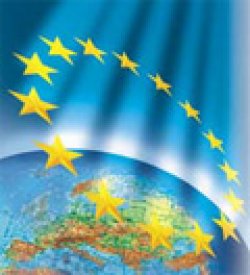 Council of the European Union – is a supreme authority of the Union, which adopts decisions. The Council consists of representatives of all Member States, so each session gets attended by one minister from each national government. Which minister will be at the session – depends on topics from the agenda of the Council. If, for example, topic is the environment, then there will be present a minister for environment from each country of the Union, and such system is called “Council for Environment”. There are nine possible configurations of the Council: for general and foreign affairs; economic and financial affairs; jurisdiction and internal affairs; hiring, social policy, health care and issues of consumers; concurrence (internal market, industry and research); transport, telecommunications and energy; agriculture and fishery; environment, and education of youth and cultures. Signature of the minister, who attends the session of the Council, means a signature of the whole national government. The Council of the EU is authorized to adopt the European laws, in many cases together with the European Parliament, and then it coordinates larger economic policies of the Member States, concludes the international agreements between the Union and other countries, approves the budget, defines the joint foreign and security policy of the Union, and coordinates the work between the national courts and police forces of countries. Each Member State has a permanent team in Brussels, which defends its national interests. They meet up each week in a frame of the Committee of permanent representatives. Each six months, a new Member State presides by the Council, and the Secretary General assists the presidency of the Council. Number of votes which one Member State has in the Council is proportional to the number of its citizens.
Council of the European Union – is a supreme authority of the Union, which adopts decisions. The Council consists of representatives of all Member States, so each session gets attended by one minister from each national government. Which minister will be at the session – depends on topics from the agenda of the Council. If, for example, topic is the environment, then there will be present a minister for environment from each country of the Union, and such system is called “Council for Environment”. There are nine possible configurations of the Council: for general and foreign affairs; economic and financial affairs; jurisdiction and internal affairs; hiring, social policy, health care and issues of consumers; concurrence (internal market, industry and research); transport, telecommunications and energy; agriculture and fishery; environment, and education of youth and cultures. Signature of the minister, who attends the session of the Council, means a signature of the whole national government. The Council of the EU is authorized to adopt the European laws, in many cases together with the European Parliament, and then it coordinates larger economic policies of the Member States, concludes the international agreements between the Union and other countries, approves the budget, defines the joint foreign and security policy of the Union, and coordinates the work between the national courts and police forces of countries. Each Member State has a permanent team in Brussels, which defends its national interests. They meet up each week in a frame of the Committee of permanent representatives. Each six months, a new Member State presides by the Council, and the Secretary General assists the presidency of the Council. Number of votes which one Member State has in the Council is proportional to the number of its citizens.
Court of the EC
The Court of the EC – consists of one judge from each member state and eight attorney generals, who are appointed by agreement of the member states for a term of six years. Their mandate can be renewed. The independence of judges must be beyond any doubt, they must be qualified for the highest judicial positions in their countries or recognized and respected lawyers. There are four most common types of cases considered by this court: requests for a preliminary ruling, proceedings for failure to fulfill obligations, proceedings for annulment and proceedings for failure to act. Judgments are binding on the member states of the Union. In order for this court to be relieved of its decision-making burden, the Council decided to include the Court of First Instance in it. This was the first step in the creation of a multi-layered system of justice at the European level. The court, usually, resolves in the first instance lawsuits and procedures initiated by citizens or institutions, that is, companies against legal acts of the European Union.
Court of Justice
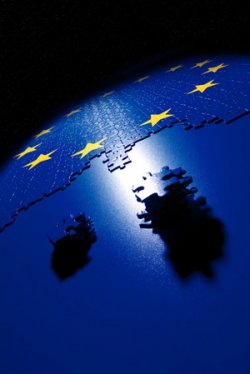 Court of Justice – consists of one judge from each Member State, and they are being assisted by the general solicitors. Usually, those are former members of the highest national courts or reliable, competent and dispassionate lawyers. This court has the authorizations to adopt the legal verdicts in disputes between the Member States, institutions of the Union, companies and individuals. The courts in each country are responsible to ensure the implementation of laws of the Union, but in order to avoid the risk that each country in its own way interprets the European regulations; the Court of Justice has a “procedure of preliminary verdict”. That practically means that the courts of Member States, which are not sure how to interpret some European provision, need and must ask for an advice from the Court of Justice. This advice is being given in a form of the “preliminary verdict”. The procedure due to violation of the European provisions, before this court, can be initiated by the European Commission as well. If the Member States or the European institutions believe that some law of the EU is illegal, or it is not correctly based on the agreements of the EU – they can ask for cancellation before the Court of Justice.
Court of Justice – consists of one judge from each Member State, and they are being assisted by the general solicitors. Usually, those are former members of the highest national courts or reliable, competent and dispassionate lawyers. This court has the authorizations to adopt the legal verdicts in disputes between the Member States, institutions of the Union, companies and individuals. The courts in each country are responsible to ensure the implementation of laws of the Union, but in order to avoid the risk that each country in its own way interprets the European regulations; the Court of Justice has a “procedure of preliminary verdict”. That practically means that the courts of Member States, which are not sure how to interpret some European provision, need and must ask for an advice from the Court of Justice. This advice is being given in a form of the “preliminary verdict”. The procedure due to violation of the European provisions, before this court, can be initiated by the European Commission as well. If the Member States or the European institutions believe that some law of the EU is illegal, or it is not correctly based on the agreements of the EU – they can ask for cancellation before the Court of Justice.
Customs Union –
The customs union is an important element of the common market. Its introduction was a primary goal after the signing of the Treaty of Rome. The most important measures included the removal of all customs duties and non-customs restrictions in exchange between member states; introduction of a common customs tariff for goods from third countries and a common trade policy. With the introduction of the single market in 1993, the usual checks at the internal borders of the Union and customs formalities were abolished. The customs services of the member states have lost the competence to charge customs duties and VAT and to collect statistical data. The community has conducted special agreements to facilitate trade, to encourage development by ensuring preferential access to the European market, an example is the convention signed with African, Caribbean and Pacific countries.
D
Day of Europe
 Day of Europe – as the most important holiday, the Union celebrates the Europe Day on March 9th. Former French minister Robert Schuman has held on March 9th, 1950. a famous speech and displayed the plan by which he interceded the European integration, as a way of ensuring the peace and building the prosperity of Europe, which has been demolished after the Second World War. Since his speech has set the bases of today’s European Union, this day is being celebrated as a birthday of the Union.
Day of Europe – as the most important holiday, the Union celebrates the Europe Day on March 9th. Former French minister Robert Schuman has held on March 9th, 1950. a famous speech and displayed the plan by which he interceded the European integration, as a way of ensuring the peace and building the prosperity of Europe, which has been demolished after the Second World War. Since his speech has set the bases of today’s European Union, this day is being celebrated as a birthday of the Union.
E
Enlargement
 Enlargement – the European Community for coal and steel, out of which the European Union has been developed, has previously been consisted of five countries: Belgium, France, Italy, the then West Germany, Luxemburg and Netherlands. Today, the Union has 27 Member States and has passed through several enlargements. Denmark, Ireland and Great Britain have been accepted in 1973. Greece has become a member in 1981., and Portugal and Spain in 1986. The biggest enlargement the Union has faced in 2004., when it has accepted ten new members from the middle and east Europe: Cyprus, Czech Republic, Estonia, Latvia, Lithuania, Hungary, Malta, Poland, Slovakia and Slovenia.
Enlargement – the European Community for coal and steel, out of which the European Union has been developed, has previously been consisted of five countries: Belgium, France, Italy, the then West Germany, Luxemburg and Netherlands. Today, the Union has 27 Member States and has passed through several enlargements. Denmark, Ireland and Great Britain have been accepted in 1973. Greece has become a member in 1981., and Portugal and Spain in 1986. The biggest enlargement the Union has faced in 2004., when it has accepted ten new members from the middle and east Europe: Cyprus, Czech Republic, Estonia, Latvia, Lithuania, Hungary, Malta, Poland, Slovakia and Slovenia.
Eurocrat
 Eurocrat – the term marks the officials of the European administration and has been derived from the term bureaucrats. In the institutions of the Union there are thousands officials employed.
Eurocrat – the term marks the officials of the European administration and has been derived from the term bureaucrats. In the institutions of the Union there are thousands officials employed.
European Commission
 European Commission – is an initiator of proposals of laws and protector of interests of the Union as a whole. The Commission proposes not only laws, but policies and programs of action as well. It is responsible for the implementation of decisions of the Council and the Parliament. President of the Commission is being elected by countries-members by the agreement, and then the new president talks to the governments of countries and elects the rest 26 members of the Commission, as many are there now. Usually, members of the Commission are unofficially called the commissaries and a number of them gets bigger by enlarging the Union. The base of the Commission is in Brussels, but it also has the offices in Luxemburg and representations in all countries of the Union, and delegations in many other countries around the world. The European Commission is the one which should notice the violation of the European laws in countries-members, after which it warns the national government and asks for a detailed report on it. If the problem is not being solved by the Commission, it gives the case to the Court of Justice, which has the competencies to impose a penalty for violators. Currently, president of the Commission is Jose Manuel Barroso. Actual assemblage of the Commission has been elected for a mandate from 2004. to 2009.
European Commission – is an initiator of proposals of laws and protector of interests of the Union as a whole. The Commission proposes not only laws, but policies and programs of action as well. It is responsible for the implementation of decisions of the Council and the Parliament. President of the Commission is being elected by countries-members by the agreement, and then the new president talks to the governments of countries and elects the rest 26 members of the Commission, as many are there now. Usually, members of the Commission are unofficially called the commissaries and a number of them gets bigger by enlarging the Union. The base of the Commission is in Brussels, but it also has the offices in Luxemburg and representations in all countries of the Union, and delegations in many other countries around the world. The European Commission is the one which should notice the violation of the European laws in countries-members, after which it warns the national government and asks for a detailed report on it. If the problem is not being solved by the Commission, it gives the case to the Court of Justice, which has the competencies to impose a penalty for violators. Currently, president of the Commission is Jose Manuel Barroso. Actual assemblage of the Commission has been elected for a mandate from 2004. to 2009.
European Council
European Council – has been established by the unified European act in 1986. It is used to describe the practice of meetings of leaders of countries or governments, members of the Union on which the political goals of development of the Union and its policies are being determined. The European Council is being held three times per year, and sometimes more often.
European Parliament
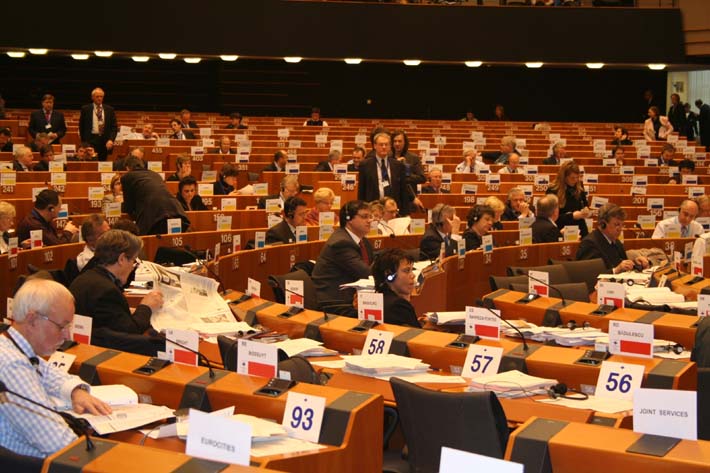 European Parliament – is directly elected legislative “hand of the Union”. Since 1979., each five years, the members of the Parliament are elected directly by citizens of countries-members. Right to vote has each citizen of the Union, who is a registered voter. Number of delegates from each country depends on number of the assigned quotas, while in the European Parliament currently are 784 delegates. However, delegates in the European Parliament are not grouped according to the countries they come from, but according to their political options. Currently, the strongest political group, which has 288 delegates, is the European rural party, Coalition of national parties of democratic-Christian orientation. Then it follows the Party of Socio-Democrats with 216 delegates, and liberals and democrats for Europe with 100 delegates. The biggest number of delegates in the Parliament, usually, is from Germany (99), France, Italy and UK (78). The Parliament meets in France (where it holds the monthly plenary sessions), Belgium (where are meeting of the parliamentary committee and additional plenary sessions) and Luxemburg (the base of the parliamentary offices). With the EU Council the European Parliament shares legislative and competences over the budget of the Union, and its role is also a supervision of all institutions of the EU.
European Parliament – is directly elected legislative “hand of the Union”. Since 1979., each five years, the members of the Parliament are elected directly by citizens of countries-members. Right to vote has each citizen of the Union, who is a registered voter. Number of delegates from each country depends on number of the assigned quotas, while in the European Parliament currently are 784 delegates. However, delegates in the European Parliament are not grouped according to the countries they come from, but according to their political options. Currently, the strongest political group, which has 288 delegates, is the European rural party, Coalition of national parties of democratic-Christian orientation. Then it follows the Party of Socio-Democrats with 216 delegates, and liberals and democrats for Europe with 100 delegates. The biggest number of delegates in the Parliament, usually, is from Germany (99), France, Italy and UK (78). The Parliament meets in France (where it holds the monthly plenary sessions), Belgium (where are meeting of the parliamentary committee and additional plenary sessions) and Luxemburg (the base of the parliamentary offices). With the EU Council the European Parliament shares legislative and competences over the budget of the Union, and its role is also a supervision of all institutions of the EU.
European Partnership
European Partnership – document by which the short-term (one–two years) and middle-term (three-four years) priorities in preparation of country for membership in the EU, have been determined. It is one of the instruments of the Pre-Accession Strategy of the EU and it serves as some kind of control list according to which the progress of some country in preparations for the EU is being measured.
F
Funds of the Union
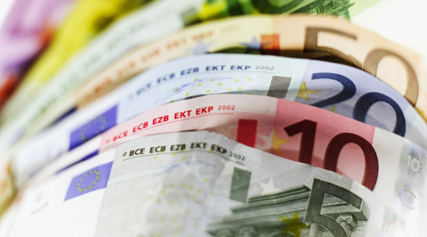 Funds of the Union – are numerous and intended for different areas, but the simplest classification of funds would be on those intended for countries-members and others intended for countries which are still not the members. First group contains the so called Programs of the Community, and instruments of cohesion, agricultural and fishing policy or so called structural funds. To the countries which are still not the members intended are the programs of assistance and cooperation with the EU, for example, pre-accession funds. Programs of the Community are the instruments which stimulate the cooperation between the countries-members. An example of it is the LIFE Program, which enables the cooperation in the area of protection of environment or the IPLE – Integrated Program of Long-lasting Education. Among the programs intended for countries which just need to become members, is the IPA fund, whose user is BiH. In July of 2004., the Union has established this program, instead of the previous CARDS, ISPA and PHARE. IPA has four components, but the first two are intended for countries-potential candidates – assistance in transition and building the capacities, and cross-border cooperation.
Funds of the Union – are numerous and intended for different areas, but the simplest classification of funds would be on those intended for countries-members and others intended for countries which are still not the members. First group contains the so called Programs of the Community, and instruments of cohesion, agricultural and fishing policy or so called structural funds. To the countries which are still not the members intended are the programs of assistance and cooperation with the EU, for example, pre-accession funds. Programs of the Community are the instruments which stimulate the cooperation between the countries-members. An example of it is the LIFE Program, which enables the cooperation in the area of protection of environment or the IPLE – Integrated Program of Long-lasting Education. Among the programs intended for countries which just need to become members, is the IPA fund, whose user is BiH. In July of 2004., the Union has established this program, instead of the previous CARDS, ISPA and PHARE. IPA has four components, but the first two are intended for countries-potential candidates – assistance in transition and building the capacities, and cross-border cooperation.
G
Good governance/good administration
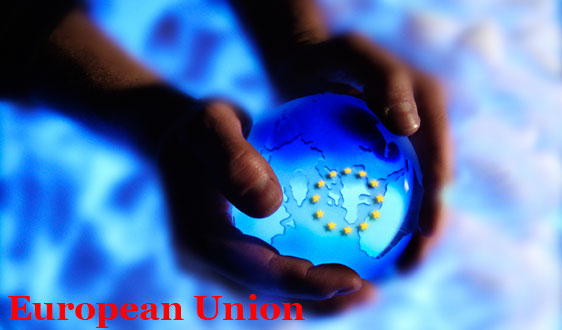 Good governance/good administration – The Union does not have a document in which it says how the governance of future members should be, but its acts constantly point out the importance of democracy and law domination. According to this, it is possible to conclude that good governance implies the openness and transparency, more intensive inclusion of citizens in politics leading, more responsibility of bearers of politics, effectiveness in implementation of measures of policy and harmonization of policies of action and all levels of government. Usually, the governance is a science on behavior of government/state and successfulness of its action. Right on good administration, however, is one of the fundamental rights of the Union, contained in the Charter on fundamental rights.
Good governance/good administration – The Union does not have a document in which it says how the governance of future members should be, but its acts constantly point out the importance of democracy and law domination. According to this, it is possible to conclude that good governance implies the openness and transparency, more intensive inclusion of citizens in politics leading, more responsibility of bearers of politics, effectiveness in implementation of measures of policy and harmonization of policies of action and all levels of government. Usually, the governance is a science on behavior of government/state and successfulness of its action. Right on good administration, however, is one of the fundamental rights of the Union, contained in the Charter on fundamental rights.
Green Book
 Green Book – of the Commission represents the documents, which should stimulate deliberation and initiate consultations on some topic at the European level (for example, on social policy, European currency or telecommunications). These consultations can result by publishing of the White Book, which transforms the conclusions of deliberation into the proposals of activities, which are being undertaken by the Community.
Green Book – of the Commission represents the documents, which should stimulate deliberation and initiate consultations on some topic at the European level (for example, on social policy, European currency or telecommunications). These consultations can result by publishing of the White Book, which transforms the conclusions of deliberation into the proposals of activities, which are being undertaken by the Community.
H
History of relations
History of relations of Bosnia and Herzegovina and the Union – After the assistance during the war, development of relations between BiH and the EU has been intensified in 1997., when the Council of Ministers of the Union has adopted political and economic conditions for development of bilateral relations with BiH, whose result are the trading capabilities – non-custom access of some BiH commodity to the market of the EU. According to the Declaration of the Union on special relations with BiH from 1998., there has been formed a joint Consulting working group of the EU and BiH, as the assistance in the area of administration, regulatory frame and policies. The process of stabilization and accession has been created by the Union in 1999., and among five countries to which it has been related, there has also been BiH. The same year, there has been initiated forming of the Stabilization pact for South-East Europe, which would help the countries in development, strengthening of peace, democracy, respecting the human rights and economic progress. Map of the path has been published in 2000., and it contains 18 steps which represent the path which BiH should pass before the preparation of the Feasibility study for the beginning of negotiations on stabilization and association agreement. In 2001., the Union has ensured the assistance for BiH, through the program CARDS. This program has replaced the projects Phare and Renovation. The European Commission has in 2002. confirmed that a Map of the path for BiH has “essentially been fulfilled”. The same year BiH has become a rightful member of the Council of Europe. At the summit in Solon in 2003., the Union has sent a clear message to the countries of Balkans, that a door of the EU is opened for them, of course, if they continue fulfilling the stated conditions. That year, the Feasibility study has been created. The decision of the Council of Ministers of the EU on the beginning of negotiations on stabilization and association with BiH has followed in 2005., and in June of 2008., BiH has signed the Stabilization and Association Agreement. Before proclamation of the independence, relation between BiH and the Union has been developing in the frame of former SFR Yugoslavia, the first socialistic country which has signed the bilateral agreement with the European Economic Community.
I
Integral or Internal market
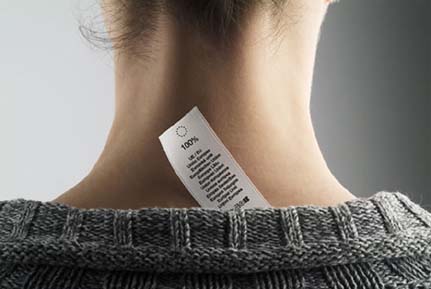 Integral or Internal market – is a form of economic integration which by abolishing the technical and administrative obstacles leads to the creation of joint market. Integral market is the essence of the Union, and it has been based on achieving the freedom of moving of people, commodity, services and capital.
Integral or Internal market – is a form of economic integration which by abolishing the technical and administrative obstacles leads to the creation of joint market. Integral market is the essence of the Union, and it has been based on achieving the freedom of moving of people, commodity, services and capital.
J
Joint aviation authorities
Joint aviation authorities – (JAA) is an associated body of the European Civil Aviation Conference (ECAC) representing the civil aviation regulatory authorities of a number of European States who have agreed to co-operate in developing and implementing common safety regulatory standards and procedures. This co-operation is intended to provide high and consistent standards of safety and a “level playing field” for competition in Europe. Much emphasis is also placed on harmonising the JAA regulations with those of the USA. The JAA Membership is based on signing the “JAA Arrangements” document originally signed by the then current Member States in Cyprus in 1990.
K
Kyoto Protocol
The Kyoto Protocol is a protocol to the United Nations Framework Convention on Climate Change (UNFCCC or FCCC), an international environmental treaty produced at the United Nations Conference on Environment and Development (UNCED). The treaty is intended to achieve “stabilization of greenhouse gas concentrations in the atmosphere at a level that would prevent dangerous anthropogenic interference with the climate system.” The EU has consistently been one of the major nominal supporters of the Kyoto Protocol, negotiating hard to get wavering countries on board. On 31 May 2002, all fifteen then-members of the European Union deposited the relevant ratification paperwork at the UN. The EU produces around 22% of global greenhouse gas emissions, and has agreed to a cut, on average, by 8% from 1990 emission levels. Denmark has committed itself to reducing its emissions by 21%. On 10 January 2007, the European Commission announced plans for a European Union energy policy that included a unilateral 20% reduction in GHG emissions by 2020.
L
Lisboan strategy
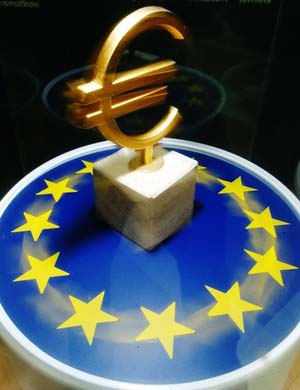 Lisboan strategy – collection of joint strategic goals adopted at the meeting in Lisboan in 2000. According to them, the Union would by 2010. need to become the most concurrent and most dynamic enterprise in the world, based on knowledge, capable of sustainable development, with the biggest rate of employment and strong economy and social cohesion.
Lisboan strategy – collection of joint strategic goals adopted at the meeting in Lisboan in 2000. According to them, the Union would by 2010. need to become the most concurrent and most dynamic enterprise in the world, based on knowledge, capable of sustainable development, with the biggest rate of employment and strong economy and social cohesion.
M
Maastricht criterions
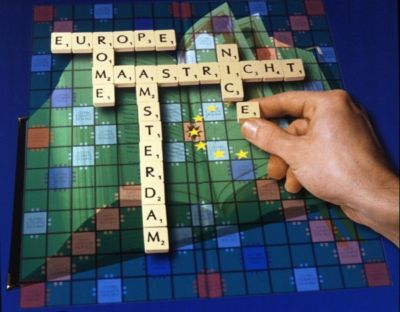 Maastricht criterions – represent five criterions, which identify if the country is ready to change its national currency into the Euro. Criterion of stability of prices means that a rate of inflation cannot be higher than 1.5% of an average rate of inflation of three Member States with the lowest inflation in the previous year. Criterion of the budget deficit implies that it basically needs to be lower than 3% of gross domestic product (GDP).
Maastricht criterions – represent five criterions, which identify if the country is ready to change its national currency into the Euro. Criterion of stability of prices means that a rate of inflation cannot be higher than 1.5% of an average rate of inflation of three Member States with the lowest inflation in the previous year. Criterion of the budget deficit implies that it basically needs to be lower than 3% of gross domestic product (GDP).
Public debt, however, as a third criterion, may not exceed 60% of gross social product, but the country with a bigger public debt, will be allowed to adopt the Euro if the trend of long-lasting reduction of public debt has been recorded. The long-term interest rates may not exceed 2% of the interest rate of three Member States with the lowest inflation in previous year.
The last criterion stipulates the stability of currency. Exchange rate of domestic currency must remain inside the previously set margins of fluctuation of at least two years. Criterions have been prescribed by the Agreement from Maastricht, as their name says itself.
Monitoring of application of law of the Community
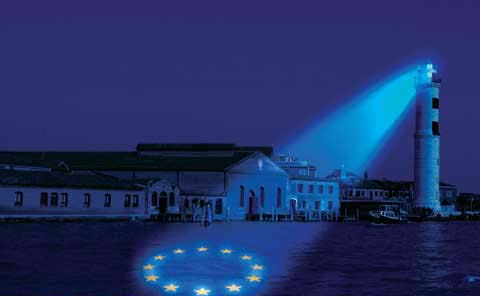 Monitoring of application of law of the Community – this obligation belongs to the European Commission, as a keeper of agreements of the Union. Monitoring is based on the fact that the Union has been established on the reign of law, and that it needs to ensure that law to be respected and applied in all Member States. During monitoring, the Commission is careful with the role, which has been left to the national governments and courts. Monitoring of application of the law of Community can be: initiating the violation procedures after uncovering the cases of violation of regulations, court procedure against the institutions, verification if the assistance given by the Member State is legal, and verification if there is respect of principles which forbid some kinds of agreements, decisions and harmonized practice, and if there is a misuse of position. The Commission publishes the annual monitoring report.
Monitoring of application of law of the Community – this obligation belongs to the European Commission, as a keeper of agreements of the Union. Monitoring is based on the fact that the Union has been established on the reign of law, and that it needs to ensure that law to be respected and applied in all Member States. During monitoring, the Commission is careful with the role, which has been left to the national governments and courts. Monitoring of application of the law of Community can be: initiating the violation procedures after uncovering the cases of violation of regulations, court procedure against the institutions, verification if the assistance given by the Member State is legal, and verification if there is respect of principles which forbid some kinds of agreements, decisions and harmonized practice, and if there is a misuse of position. The Commission publishes the annual monitoring report.
N
Nationality
Nationality – Everyone, who is a citizen of Member State, is considered a citizen of the EU. This citizenship is only an addition to the national citizenship. With rights and obligations prescribed by the Contract on establishing the European Community, by citizenship in the Union, four special rights have been given: freedom of moving and residing anywhere in the Union; right on voting and candidacy at elections for local government and the European Parliament in the country of residence; right on submitting the request and complaint to the European ombudsman, and each citizen of the Union, who gets out of the Union’s borders, has a right on diplomatic and consular protection by competent authorities of any Member State, if his/her country does not have an official representation.
O
Ombudsman
 Ombudsman – the European ombudsman has been established by the contract from Maastricht in 1992., as a mediator between the citizens and governments of the European Union. Any citizen, company, institution or person, who lives or has a legal residence in countries of the Union, can send a complaint on the European institutions and their work to the ombudsman. Task of the ombudsman is to research complaints and assist in uncovering the cases of bad business. Examples of bad administration are: unjust, discrimination, misuse of power, lack or refusing to give the information, unnecessary adjournments and unsuitable procedures. After investigation, in which the European institutions are obligated to give to the ombudsman all needed information, the European ombudsman can give suggestions to the institutions of the EU or propose to the European Parliament, which elects it, to undertake political action they consider necessary. First ombudsman was nominated in 1995., and a current one is Nikiforos Diamandouros. (Diagram from the websites of ombudsmen from 2008.)
Ombudsman – the European ombudsman has been established by the contract from Maastricht in 1992., as a mediator between the citizens and governments of the European Union. Any citizen, company, institution or person, who lives or has a legal residence in countries of the Union, can send a complaint on the European institutions and their work to the ombudsman. Task of the ombudsman is to research complaints and assist in uncovering the cases of bad business. Examples of bad administration are: unjust, discrimination, misuse of power, lack or refusing to give the information, unnecessary adjournments and unsuitable procedures. After investigation, in which the European institutions are obligated to give to the ombudsman all needed information, the European ombudsman can give suggestions to the institutions of the EU or propose to the European Parliament, which elects it, to undertake political action they consider necessary. First ombudsman was nominated in 1995., and a current one is Nikiforos Diamandouros. (Diagram from the websites of ombudsmen from 2008.)
P
Process of Stabilization and Association
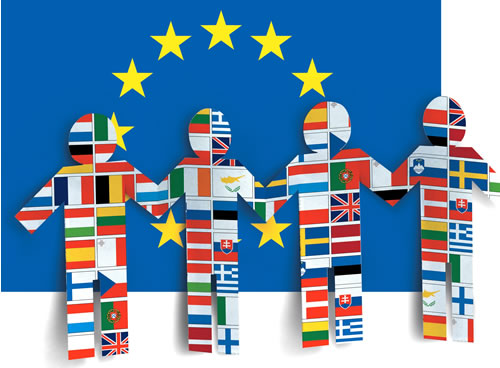 Stabilization and Association Agreement, which has been created by the Union in 1999., is intended to the countries of Balkans, as well as BiH, and it differs from the previous concepts of associating, applied to the countries of central and east Europe, and Baltic. Besides the enlargement, this process should ensure stabilization of countries as well, and the whole region, because of its recent war past. One of the fundaments of the stabilization and association process is a regional cooperation. Countries need to show their readiness for cooperation with the region. In the same time, this process stipulates the assistance of the Union in fulfilling of criterions, which are necessary for progress on the European path. In the final of process, the country signs and implements the Stabilization and Association Agreement, and it creates necessary documents, which can ensure to it a status of candidate for membership in the EU. Usually, this process includes six elements: stabilization and association agreement, development of existing economic and trading relations with the region and inside it, pre-purpose of assistance, larger assistance for democratization, development of civil society, education and building of institutions, using of possibilities of cooperation in the areas as are jurisdiction and internal policies, as well as development of political action and political dialog in the region.
Stabilization and Association Agreement, which has been created by the Union in 1999., is intended to the countries of Balkans, as well as BiH, and it differs from the previous concepts of associating, applied to the countries of central and east Europe, and Baltic. Besides the enlargement, this process should ensure stabilization of countries as well, and the whole region, because of its recent war past. One of the fundaments of the stabilization and association process is a regional cooperation. Countries need to show their readiness for cooperation with the region. In the same time, this process stipulates the assistance of the Union in fulfilling of criterions, which are necessary for progress on the European path. In the final of process, the country signs and implements the Stabilization and Association Agreement, and it creates necessary documents, which can ensure to it a status of candidate for membership in the EU. Usually, this process includes six elements: stabilization and association agreement, development of existing economic and trading relations with the region and inside it, pre-purpose of assistance, larger assistance for democratization, development of civil society, education and building of institutions, using of possibilities of cooperation in the areas as are jurisdiction and internal policies, as well as development of political action and political dialog in the region.
R
Regional policy
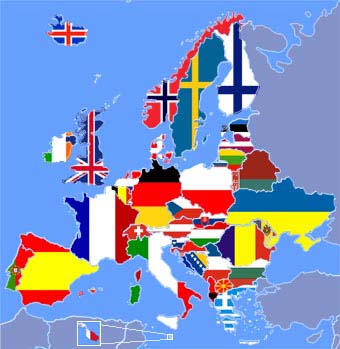 Regional policy – is one of the oldest joint policies of the Union, by which an equable development on whole territory of the EU has been achieved, by reducing and removing of structural differences among the regions. Removing of differences among the regions has also been mentioned in the Rome agreement from 1957., by which have been established the European Economic Community and the European Community for Atomic Energy. By the agreement from Maastricht, economical and social cohesion have been emphasized as one policy of the Union. Regional policy has been based on solidarity, so that a part of money which Member States pay into the joint budget is being received by the less developed regions and social groups. For that assistance, there are structural funds and the Cohesion fund.
Regional policy – is one of the oldest joint policies of the Union, by which an equable development on whole territory of the EU has been achieved, by reducing and removing of structural differences among the regions. Removing of differences among the regions has also been mentioned in the Rome agreement from 1957., by which have been established the European Economic Community and the European Community for Atomic Energy. By the agreement from Maastricht, economical and social cohesion have been emphasized as one policy of the Union. Regional policy has been based on solidarity, so that a part of money which Member States pay into the joint budget is being received by the less developed regions and social groups. For that assistance, there are structural funds and the Cohesion fund.
Request for membership
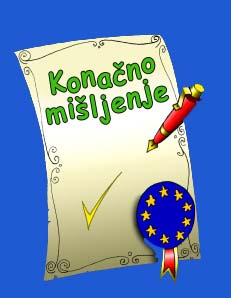 Request for membership – is a shorter letter, which signs the president of state and/or president of government of country which wants to become a member of the Union. This request states the European affiliation of country which submits the request, gets included in the Union as a goal of policy of country, and its readiness to accept all aims of the Union and obligations which come out of membership in the EU. Request can be accompanied by a document in which the country states achievements in the process of getting closer to the Union. This request should be sent to the Council of the EU or to the country which in that moment presides by the Council.
Request for membership – is a shorter letter, which signs the president of state and/or president of government of country which wants to become a member of the Union. This request states the European affiliation of country which submits the request, gets included in the Union as a goal of policy of country, and its readiness to accept all aims of the Union and obligations which come out of membership in the EU. Request can be accompanied by a document in which the country states achievements in the process of getting closer to the Union. This request should be sent to the Council of the EU or to the country which in that moment presides by the Council.
Right on good governance
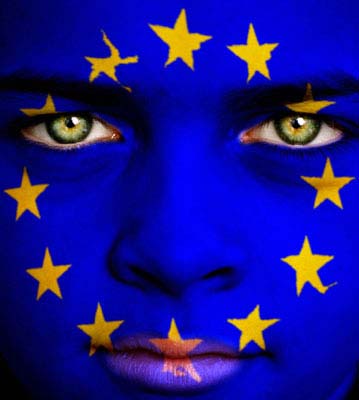 Right on good governance – By the Charter on fundamental rights of the European Union from 2000., there has been defined a right on good governance. This right implies that the authorities and institutions need to act objectively, justly and in a reasonable deadline with the subject of any person. Each person has a right to be heard before undertaking any kinds of measures, which would influence him/her directly or indirectly, as well as a right of the access to this act, with respecting of confidence and professional secret. Everyone has a right to contact the institutions of the Union in one of the languages of the EU and receive an answer in the same language. Obligation of administration is to explain its decision, and pay remuneration for damage, which has been made by administration and its servants by doing their obligations. Administration needs to be open, effective and independent, that follows principles of transparency and openness, professional and independent firstly on political influences, and that ensures to each citizen achievement of their rights. Documents of the Council of Europe also talk about the rights on good governance, which also promote equality, objectivity, non-discrimination, neutrality, respecting of rights on defense, transparency and effectiveness.
Right on good governance – By the Charter on fundamental rights of the European Union from 2000., there has been defined a right on good governance. This right implies that the authorities and institutions need to act objectively, justly and in a reasonable deadline with the subject of any person. Each person has a right to be heard before undertaking any kinds of measures, which would influence him/her directly or indirectly, as well as a right of the access to this act, with respecting of confidence and professional secret. Everyone has a right to contact the institutions of the Union in one of the languages of the EU and receive an answer in the same language. Obligation of administration is to explain its decision, and pay remuneration for damage, which has been made by administration and its servants by doing their obligations. Administration needs to be open, effective and independent, that follows principles of transparency and openness, professional and independent firstly on political influences, and that ensures to each citizen achievement of their rights. Documents of the Council of Europe also talk about the rights on good governance, which also promote equality, objectivity, non-discrimination, neutrality, respecting of rights on defense, transparency and effectiveness.
S
Schengen
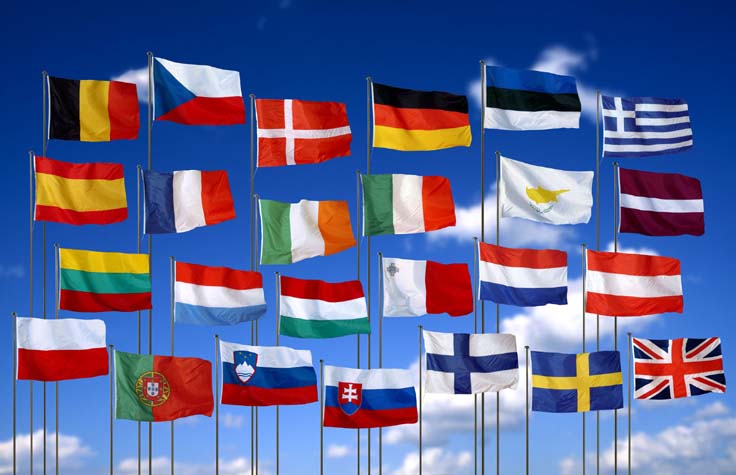 Schengen – by the Agreement signed in Schengen in 1985. between Belgium, France, Luxemburg, Germany and Netherlands there has been agreed a gradual abolishment of internal bordering controls between these five countries, and introduction of freedom of moving for all citizens of five signatories, members of the EU or citizens of third countries. With an exception of Great Britain and Ireland, all Member States have over time become the countries of Schengen space, and they were also joined by Iceland and Norway.
Schengen – by the Agreement signed in Schengen in 1985. between Belgium, France, Luxemburg, Germany and Netherlands there has been agreed a gradual abolishment of internal bordering controls between these five countries, and introduction of freedom of moving for all citizens of five signatories, members of the EU or citizens of third countries. With an exception of Great Britain and Ireland, all Member States have over time become the countries of Schengen space, and they were also joined by Iceland and Norway.
Schuman plan
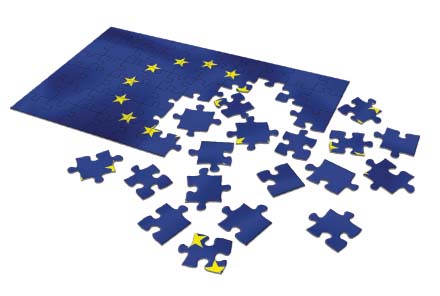 Schuman plan – has been named by former minister of foreign affairs of France, Robert Schuman, who has proposed it on May 9th, 1950., because of unification of French and German production and distribution of steel. This was supposed to be a way to avoid further development of conflicts in Europe, but also a way of economic revival of Germany. With these two countries, in negotiations have later been involved Italy, and countries of Benelux, and negotiations have resulted by signing the Paris agreement in 1951., by which the European Community for coal and steel (ancestor of the Union) has been based.
Schuman plan – has been named by former minister of foreign affairs of France, Robert Schuman, who has proposed it on May 9th, 1950., because of unification of French and German production and distribution of steel. This was supposed to be a way to avoid further development of conflicts in Europe, but also a way of economic revival of Germany. With these two countries, in negotiations have later been involved Italy, and countries of Benelux, and negotiations have resulted by signing the Paris agreement in 1951., by which the European Community for coal and steel (ancestor of the Union) has been based.
Social charter
 Social charter – Implies respecting of certain social rights, firstly rights on enabling, equal possibilities and work ambient. The charter has been considered as the instrument which contains “ethic obligations” on respecting the social rights. Some of the rights from this charter and additional protocols are: principle of non-discrimination by hiring, right on union organization, right on health protection, social security, and social and medical assistance, right of older persons…
Social charter – Implies respecting of certain social rights, firstly rights on enabling, equal possibilities and work ambient. The charter has been considered as the instrument which contains “ethic obligations” on respecting the social rights. Some of the rights from this charter and additional protocols are: principle of non-discrimination by hiring, right on union organization, right on health protection, social security, and social and medical assistance, right of older persons…
Sources of law of the Union
 Sources of law of the Union – are classified on primary, as are the sources of law, establishment agreements and general principles of law, and secondary – as are legal acts which the Council of the EU adopts on the basis of primary acts (directives, opinions, recommendations), and judicial practice. The term establishing contracts encompasses the contracts by which are created the European Community for coal and steel, the European Economic Community and the European Community for atomic energy, and contracts which are changing the previous contracts – the unified European act, the Contract from Maastricht, the Contract from Nice.
Sources of law of the Union – are classified on primary, as are the sources of law, establishment agreements and general principles of law, and secondary – as are legal acts which the Council of the EU adopts on the basis of primary acts (directives, opinions, recommendations), and judicial practice. The term establishing contracts encompasses the contracts by which are created the European Community for coal and steel, the European Economic Community and the European Community for atomic energy, and contracts which are changing the previous contracts – the unified European act, the Contract from Maastricht, the Contract from Nice.
T
TAEIX
 TAEIX – is an office of the Commission for technical assistance, which has been established because of the preparation of countries of central and east Europe for integration into the integral market of the Union. In the beginning, the task of this office was to inform countries on legislation of the integral market of the Union and that way ease them application of those regulations. Since 1997., all countries which submit the request for membership and the whole legal inheritance of the Union, have been encompassed. TAEIX deals with public administration in the countries, which want to become the members of the Union, ensures legal texts, organizes trainings and visits of experts and it has a key role in estimating if the legislation of country which wants a membership, is harmonized with laws of the Community. The office assists as well in application of the legal inheritance.
TAEIX – is an office of the Commission for technical assistance, which has been established because of the preparation of countries of central and east Europe for integration into the integral market of the Union. In the beginning, the task of this office was to inform countries on legislation of the integral market of the Union and that way ease them application of those regulations. Since 1997., all countries which submit the request for membership and the whole legal inheritance of the Union, have been encompassed. TAEIX deals with public administration in the countries, which want to become the members of the Union, ensures legal texts, organizes trainings and visits of experts and it has a key role in estimating if the legislation of country which wants a membership, is harmonized with laws of the Community. The office assists as well in application of the legal inheritance.
Transparency
Transparency – this expression is often being used in a language of the Community, and it means the openness of institutions towards citizens. This expression is connected not only to the requirements of public to have a larger access to information and documents of the Union, but also to their stronger engagement in the process of deciding, as well as simpler written texts (simplification of agreement of the Union, and better connecting and consolidating of regulations). Complaints to the lack of transparency are actually reflection of public opinion that the decision-making process in the European institutions is complex, and that an average European citizen cannot understand it. The Council and the Commission have accepted a codex of conduct, by which they have included in their regulations some special provisions on the access to documents. By the Agreement from Amsterdam, all citizens of the Union have been ensured a right on access to documents of the European Parliament, the Council and the Commission. Access to documents can be rejected because of, for example, security or defense.
Twinning
Twinning – is one of the basic instruments of the Pre-Accession Assistance, which is intended for development of institutional ability. It implies cooperation of servants of civil service of the country-candidate and servants of similar institutions of the Member States. Purpose of twinning is creating of modern and effective administration in countries-candidates, which will be able to apply and implement the legal inheritance of the Union.
U
Unanimity
Unanimity – term relates to the requirement that all Member States which meet in the European Union Council reach the agreement, in order for some proposal to get adopted. Disagreeing of even one Member State means that the decision will not get adopted. Such manner of deciding would probably block the work of the Union, which constantly spreads out itself, so the rule of unanimity is being applied exceptionally in sensitive areas, as are asylum, taxation or joint foreign and security policy. In majority of areas of decision making, Member States vote by a qualified majority. On majority of questions the European Union Council decides by voting, and each Member State has a determined number of votes. That number is bigger in case of France, Germany, Italy and England. In order for proposal to be approved, there must be a qualified majority in the Council, and in some cases the two-thirds one. Each country can ask the Council to verify if among the countries which have voted for decision, has been encompassed 62% of total citizenship of the Union.
V
Venice commission
Venice commission – The European Commission for Democracy through Law, better known as the Venice Commission, is the Council of Europe’s advisory body on constitutional matters. Established in 1990, the commission has played a leading role in the adoption of constitutions that conform to the standards of Europe’s constitutional heritage. Initially conceived as a tool for emergency constitutional engineering, the commission has become an internationally recognised independent legal think-tank. It contributes to the dissemination of the European constitutional heritage, based on the continent’s fundamental legal values while continuing to provide “constitutional first-aid” to individual states. The Venice Commission also plays a unique and unrivalled role in crisis management and conflict prevention through constitution building and advice.
W
White book
 White book – relates to the documents which contain the proposals of future actions of community in the certain area. In some cases, white book follows the green book, which is being published by the European Commission in order to initiate the consultations on some topic at the level of Europe. An example of a White book is the one published 1995., which relates to preparation of countries of the Middle and East Europe for the inclusion in the internal market of the Union. It is a unique guide for those countries to harmonize the legislation on arranging the internal market of the Union.
White book – relates to the documents which contain the proposals of future actions of community in the certain area. In some cases, white book follows the green book, which is being published by the European Commission in order to initiate the consultations on some topic at the level of Europe. An example of a White book is the one published 1995., which relates to preparation of countries of the Middle and East Europe for the inclusion in the internal market of the Union. It is a unique guide for those countries to harmonize the legislation on arranging the internal market of the Union.
This document elaborates 22 of the total 31 chapters of regulations which make the legal inheritance of the Union (aquis). Once the Council accepts the White book, that document can become a program of the Union’s action in certain area.
Z
Zero duty tariff
Zero duty tariff – From January 1st, 2009., for the group of products (around 11 thousands of products) which are being imported from the European Union in Bosnia and Herzegovina, inures a zero custom tariff, in accordance to the Interim Stabilization and Association Agreement, which has inured on July 1st, 2008. Franchises by the export in the EU, Bosnia and Herzegovina has since 2000. Usually, the custom union is one of the fundaments of the EU and an important element of keeping up with the integral market. There are unified rules at the external borders of the EU, as are joint custom tariffs, preference trades, controls of health and environment, joint agriculture policies…. Majority of import from the countries, which are not members of the European Union, is a subject of custom tariff from 0 to 15%. Average custom rate is around 5%.
